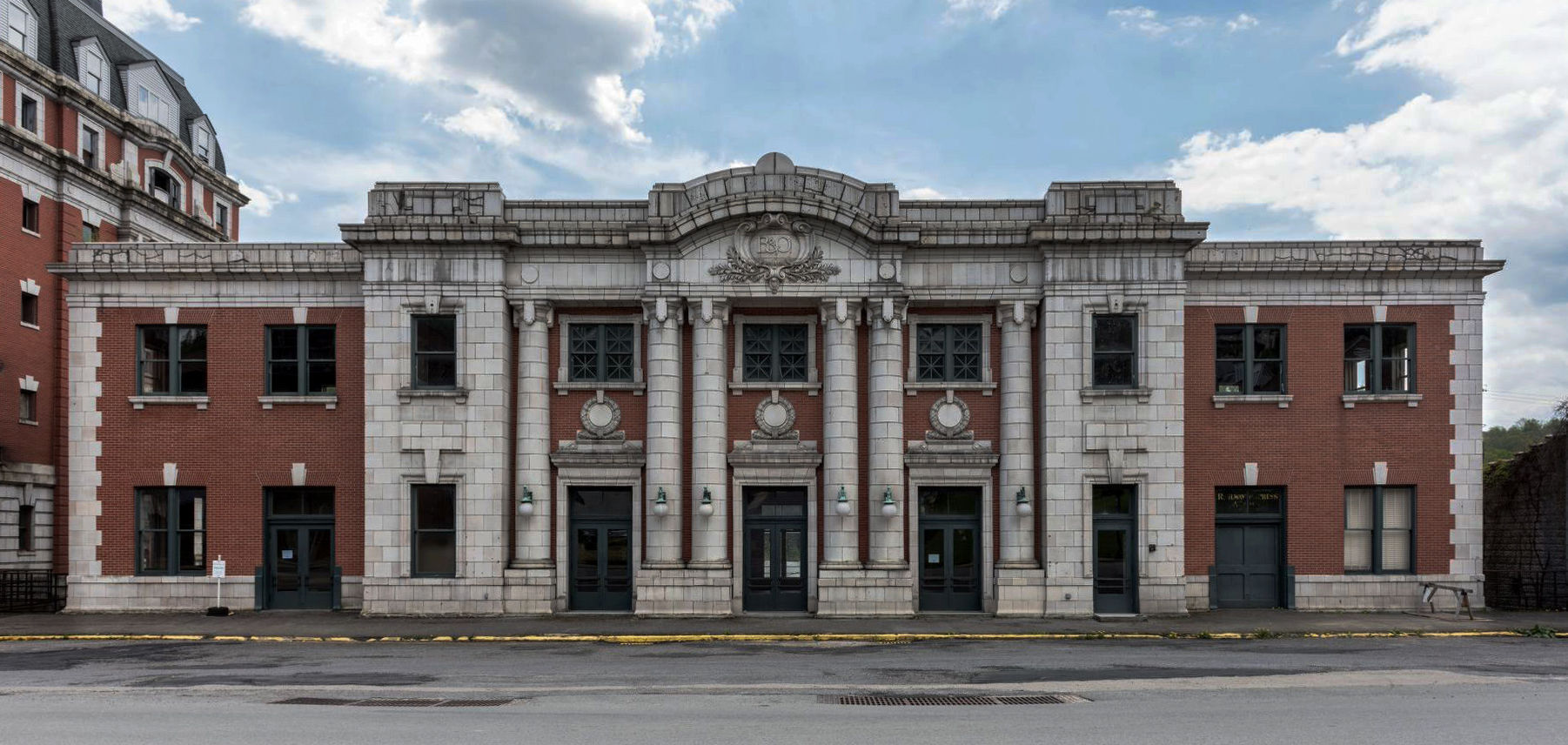Welcome to DU!
The truly grassroots left-of-center political community where regular people, not algorithms, drive the discussions and set the standards.
Join the community:
Create a free account
Support DU (and get rid of ads!):
Become a Star Member
Latest Breaking News
Editorials & Other Articles
General Discussion
The DU Lounge
All Forums
Issue Forums
Culture Forums
Alliance Forums
Region Forums
Support Forums
Help & Search
West Virginia
Related: About this forumEPA brownfield grants helping revive West Virginia communities
EPA brownfield grants helping revive West Virginia communities
By James E. Casto For Daily Mail WV Jan 7, 2021

Grafton’s Baltimore & Ohio Railroad depot saw its last train leave in 1971. The grand Willard Hotel, erected adjacent to the depot, checked out its last guests decades ago. Both buildings have long stood vacant, defying all previous efforts to restore them and put them to new use. Now an EPA brownfield grant will be used to conduct environmental site assessments and reuse planning activities in the region. Priority sites for the assessments include the depot and hotel.
U.S. Library of Congress
An old rail car plant in Huntington, a 1920s ice house in Hinton and a World War II-era industrial structure in Morgantown are among projects in West Virginia communities that share in $3.3 million worth of brownfield grant funding from the federal Environmental Protection Agency (EPA).
The EPA defines a brownfield as “a property for which the expansion, redevelopment, or reuse may be complicated by the presence or potential presence of a hazardous substance, pollutant, or contaminant.” The agency estimates there are more than 450,000 brownfields in the United States.
The EPA Brownfields Program began in 1995 and has provided nearly $1.6 billion in grants to assess and clean up contaminated properties and return blighted properties to productive use. To date, brownfields investments have leveraged more than $31 billion in cleanup and redevelopment. Over the years, the relatively small investment of federal funding leveraged more than 160,000 jobs from both public and private sources,
Grants awarded by EPA’s Brownfields Program provide communities with an opportunity to transform contaminated sites into community assets that attract jobs and achieve broader economic development outcomes, while taking advantage of existing infrastructure. For example, brownfields grants have been shown to:
n Increase local tax revenue: A study of 48 brownfields sites found that an estimated $29 million to $97 million in additional local tax revenue was generated in a single year after cleanup. This is two to seven times more than the $12.4 million EPA contributed to the cleanup of these sites.
n Increase residential property values: Another study found that property values of homes near revitalized brownfields sites increased between 5 and 15 percent following cleanup.
{snip}
By James E. Casto For Daily Mail WV Jan 7, 2021

Grafton’s Baltimore & Ohio Railroad depot saw its last train leave in 1971. The grand Willard Hotel, erected adjacent to the depot, checked out its last guests decades ago. Both buildings have long stood vacant, defying all previous efforts to restore them and put them to new use. Now an EPA brownfield grant will be used to conduct environmental site assessments and reuse planning activities in the region. Priority sites for the assessments include the depot and hotel.
U.S. Library of Congress
An old rail car plant in Huntington, a 1920s ice house in Hinton and a World War II-era industrial structure in Morgantown are among projects in West Virginia communities that share in $3.3 million worth of brownfield grant funding from the federal Environmental Protection Agency (EPA).
The EPA defines a brownfield as “a property for which the expansion, redevelopment, or reuse may be complicated by the presence or potential presence of a hazardous substance, pollutant, or contaminant.” The agency estimates there are more than 450,000 brownfields in the United States.
The EPA Brownfields Program began in 1995 and has provided nearly $1.6 billion in grants to assess and clean up contaminated properties and return blighted properties to productive use. To date, brownfields investments have leveraged more than $31 billion in cleanup and redevelopment. Over the years, the relatively small investment of federal funding leveraged more than 160,000 jobs from both public and private sources,
Grants awarded by EPA’s Brownfields Program provide communities with an opportunity to transform contaminated sites into community assets that attract jobs and achieve broader economic development outcomes, while taking advantage of existing infrastructure. For example, brownfields grants have been shown to:
n Increase local tax revenue: A study of 48 brownfields sites found that an estimated $29 million to $97 million in additional local tax revenue was generated in a single year after cleanup. This is two to seven times more than the $12.4 million EPA contributed to the cleanup of these sites.
n Increase residential property values: Another study found that property values of homes near revitalized brownfields sites increased between 5 and 15 percent following cleanup.
{snip}
2 replies
 = new reply since forum marked as read
Highlight:
NoneDon't highlight anything
5 newestHighlight 5 most recent replies
= new reply since forum marked as read
Highlight:
NoneDon't highlight anything
5 newestHighlight 5 most recent replies
EPA brownfield grants helping revive West Virginia communities (Original Post)
mahatmakanejeeves
Jan 2021
OP
bottomofthehill
(9,219 posts)1. Socialism
Why does West Virginia need our tax dollars to fix their problems.
modrepub
(3,891 posts)2. That Questions Should Answer Itself
WV is quite dysfunctional. Their governor is a coal magnate. Industry permeates to the highest levels of government. Unfortunately, with the Senate so close people like Senator Manchin can pretty much keep directing Federal money into the state.